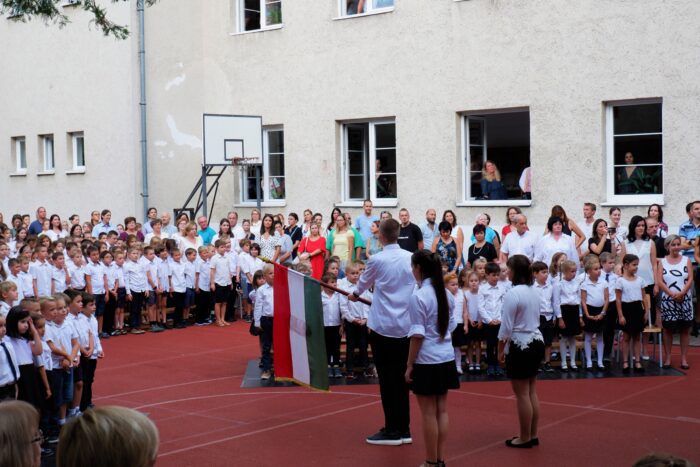The Progressive Post
Perpetuating inequality: selling off education

Capitalist dynamics have shown their limits in all spheres, but they endure in one of the most fundamental areas of society: education. ‘Commodification of education’ is the name we give to this phenomenon: it is where most opportunities to curb inequalities go to die. From educational technology (EdTech) to so-called ‘marketable skills’, it is time for governments to truly ask themselves for whom and what education is there for.
Even though education is a basic human right, learning is not always treated as a public good. The education sector has been hit by a severe decrease in public expenditure since the 2007-2008 global financial crisis. In the EU, this ‘flatlining of expenditure’ is part of a wider trend, in which education and training are increasingly transformed from public service into profit-making activities. This ‘commodification of education’ can take many forms, such as, during the pandemic, the introduction of EdTech tools provided by tech giants known for privacy issues and profit-maximising behaviour.
The process of commercialisation has its roots in practices such as school choice, private tutoring and the New Public Management approach, which treats learners as customers, anchors services to value for money, ranks performances and provides or withdraws services according to performance or perceived need. These practices are a risk for public education, as they are proven to lead to widening socio-economic gaps pooling resources on wealthier learners, and causing academic underachievement and drop-outs. School choice is regulated differently across Europe, but, as it leads to the creation of rankings of schools and universities, in all cases it forces education institutions to compete against each other on the market, selling themselves and catering to parents’ interests and whims. It also changes the role of learners from citizens with rights to consumers of education, while teachers/trainers transform from public servants into producers and technicians of education, assessed by specific benchmarks. Private tutoring is another example which – when not regulated – can exacerbate social inequalities and offer advantages only to the most privileged learners. These practices contradict the democratic idea of a free, universal right to quality education.
The commodification of education, however, has also exogenous elements, like the pervasiveness of EdTech actors for the provision of digital education in public schools. More indirect perhaps is the recent but dramatic tendency to model education simply after the perceived needs of the labour market, fuelled by the ongoing twin transitions. It is indeed true that, in the words of EC President Ursula von der Leyen, “Europe needs workers.” In a rapidly changing labour market, many sectors experience a supply crisis of specific professions and skills while the employability of an increasing number of workers is threatened by the obsolescence of their skills, leading to a stronger mismatch between supply and demand of work. However, when tendencies such as the need for upskilling and reskilling the workforce and the privatisation of education are paired, they mutually reinforce each other, affecting the very meaning and purpose of education. The push to link digital and green skills to the needs of the future workplace, the inherent competition principle behind school choice and a more top-down approach in school governance, unequal achievements caused by for-profit tutoring – it all underpins an understanding of education as a mere preparation to the labour market and as a simple provider of workforce. This neoliberal vision alters the understanding of education as a public good that fosters self-aware, creative, free and empowered citizens who can participate in society to the fullest. This is why education should have intrinsic value in all its forms (formal, non-formal and informal), benefitting more than the market, and fostering a vibrant democracy.
The need for workers has spurred the Commission to declare 2023 the ‘European Year of Skills‘, and to frame it exactly like this: a need of marketable skills for workers. And yet, in the priorities of the European Education Area the Commission itself highlights a much deeper crisis: basic skills are falling behind, and no education system seems to have found the magic formula to reverse this trend. These two approaches by the Commission are not coherent. If the market needs plumbers, will the education providers who are called to fulfil that need, still be required to teach literacy, societal and environmental understanding, critical thinking, and mathematical skills? Or will they limit themselves to specific sectorial skills? It rather seems the latter.
This is not to say that all students must be steered towards an academic career, but the idea that knowledge is power and that it will set you free has been the call to arms of the labour movement since the very dawn of its existence. When education is too instrumentalised and commodified, it risks locking people in, leaving others behind, and reducing our overall potential as societies. It makes our societies weaker.
Skills mismatches and labour market shortages are far from Europe’s only problems at the moment. Far right movements are making gains everywhere, and where they get into power, they go after the democratic foundations of our societies. To address this, the EU has called for more attention to avoid the plague of disinformation, admitting that transversal skills are needed more than ever to ensure cohesive and resilient societies, mindful of recent divisive events such as Brexit, pandemic responses, the war at our doorstep. We navigate an increasingly difficult reality, and the plummeting of basic skills does not bode well for our ability to cope with an increasingly complex future.
Learners from underserved communities need the most investment, as, often, they lack access to many of the educational tools required to succeed in the current system (EdTech, private tutoring, school choice etc.) We saw the concrete effects of this during the pandemic lockdowns. The idea that knowledge is power and that it will set you free has been the call to arms of the labour movement since the very dawn of its existence! Education without equity leaves too many behind.
An education system that considers the whole person is more likely to produce citizens that will find a place both in the labour market and in society. Citizens who are personally fulfilled and thus more open to contribute to the life and development of the community. Instead of limiting our educational aspirations to perceived shortcomings of the labour market, we need to invest in transversal skills and more specifically in Global Citizenship Education (GCE). Basic skills on their own give tools, but not necessarily the self-confidence, self-awareness and empowerment needed to use them for a community’s well-being and to realise one’s potential.
We need governments to ask themselves what education is for. If the answer is to simply feed the market with workers, they need to accept the possibility that commodified and instrumentalised educational systems might be very inefficient, even for this simple need. Workers with highly specific labour market skills, but without critical personal skills, risk finding themselves unable to make informed choices not only for public life, but also unsuited and less free to do so in their professional lives. Ultimately, this harms the same labour market which was the target in the first place. For the survival of democracy, we need citizens that are able to decipher the reality around them and participate confidently in making choices for themselves and their communities. When education is sold off and handed over to the market, we deny basic rights to many citizens, and are left witnessing the widening of gaps in society and with it the potential breakdown of our social contract. If the education question remains unsolved, our democracies cannot hold for long, as they are slowly being deprived of their very essence: an involved, informed and educated society.
Photo credits: Shutterstock/SpeedKingz




